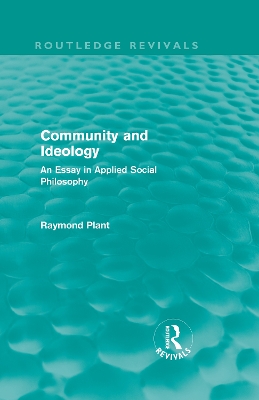International Library of Welfare & Philosophy
2 total works
This re-issued work, first published in 1980, represents a work of normative political philosophy which argues positively for the centrality of the obligation to meet the various demands of social need in our society, and will be of particular interest to students of politics, philosophy, social politics and administration.
Bringing the insights of analytical Political Philosophy to bear on the issues of social welfare and welfare provision, the authors discuss such issues as the basis of the sense of stigma involved in the receipt of welfare benefits, the right of welfare and the concepts of 'community'.
Initially published in 1974, this is a work of applied social and political philosophy which relates the philsophical analysis to various forms of community work theory and practice. Raymond Plant emphasizes that 'community' has a wide range of both descriptive meanings and evaluative connotations, linking this dual role of the word in the description and evaluation of social experience to its history in ideological confrontations. The book takes account of some liberal criticisms of the community ideal, and finally seeks to re-state a theory of community compatible with a liberal ideology.

